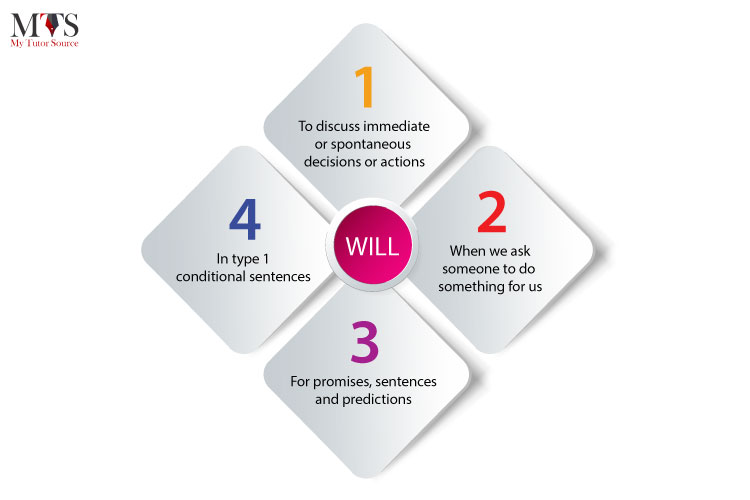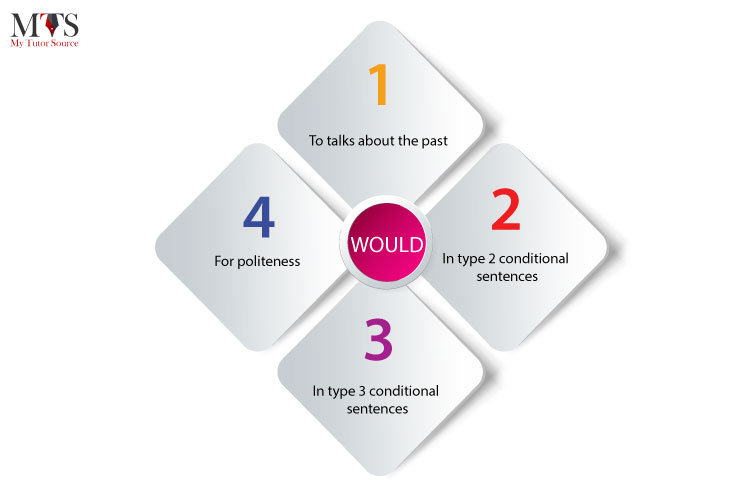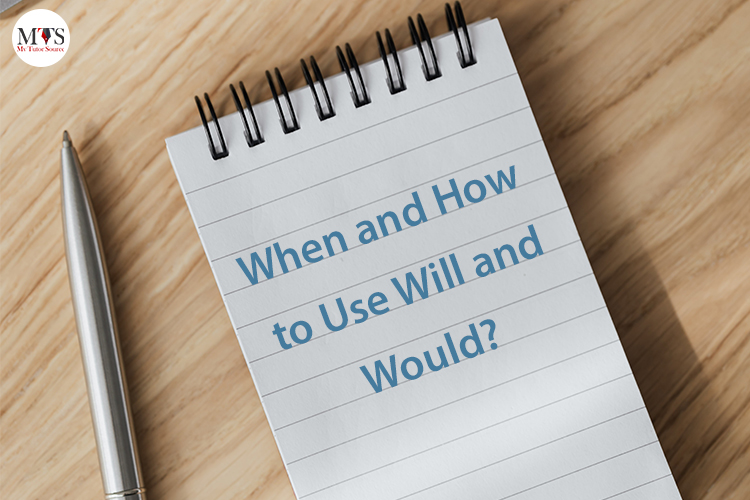The importance of English is growing exponentially since it is one of the most spoken languages in the world. When almost every school is an English medium school, students find it hard to keep up with the grammar, and English learners face a lot of confusion. One of the difficult parts of English grammar is how and when to use will and would. Therefore, we are going to discuss this problem.
Will vs Would?
WILL:
Will is a modal helping verb, where it describes an action that is expected to take place in the future. When we talk about some real situations, we use “Will” with first conditional.
WHEN TO USE WILL?
We are going to discuss five (5) conditions when you have to use will:
Will is used in statements that to do with the future. It involves prediction, expecting and promising. For Example:
- Zoe will have a meeting this afternoon.
- He will be turning 20 next month.
- Jessie will arrive at the airport at 4pm on Saturday.
- We will be in London by 8 pm tomorrow.
- I will send you the details by email.
Will is used to discuss immediate or spontaneous decisions or actions. For Example:
- I will go and sort out this problem.
- I will have an orange juice.
- I will see you now.
- I’m not hungry, so I will just have an apple juice.

Will is used when we ask someone to do something for us. For Example:
- Will you tell Dan that I am looking for him?
- Will you fax me the documents?
- Will you copy these files?
- Will you pass me the juice?
Will is used for promises, sentences and predictions. For Example:
- I will always love you.
- Joe will come soon and help her.
- Nick will tell you the truth
Will is used in type 1 conditional sentences. For Example:
- Zoe will go hiking this afternoon if the weather is fine.
- Winston will pass the exam if he studies well.
- I will give the new phone to Richard if he is performing well.
- If it rains tomorrow, I will bring my umbrella
Related Read: https://www.mytutorsource.hk/blog/improve-english-writing-skills/
WOULD:
Would is a modal helping verb where it describes something that was in the future at the time of the original auction, but is no longer in the future now.
WHEN TO USE WOULD?
The word would is the past tense form of the word will. It talks about the past that was in the future at that time. For Example:
- Shawn wished Sophie would come.
- We thought we would be in London by 8 pm. (This implies that it was supposed to happen but due to some reason it did not happen)
- I was not hungry, so I said that I would just have an orange juice.
- She said she would send me all the details by email.

Would is used in type 2 conditional sentences. Example:
- If Maeve knew the answer, she would win the contest.
- If Mathew did not smoke and drink a lot of soft drinks, he would be healthy.
- If I had Nick’s phone number, I would call him.
- If I had wings I would fly all over the world.
- If Kim stopped playing video games, his grades would improve.
Would is used in type 3 conditional sentences. For Example:
- If Ross had talked to me, I would have listened to him.
- If Jess had saved enough money, she would have bought a new car.
- Monica and Sophie would have gone swimming if weather had been good.
- If John had stopped playing video games, his grades would have improved.
- If Nancy had gone to law school, she would have become a lawyer.
When you ask for permission or make a request, both ‘will and would’ can be used; however, it is considered more polite to use would. For Example:
- Would you like some water?
- It is cold here would you mind turning off the AC?
- Would you like a piece of cake?
- Would you mind lending me some money?
- Would you mind if I left early tomorrow?
Find Top Tutors in Your Area
Find A Tutor



